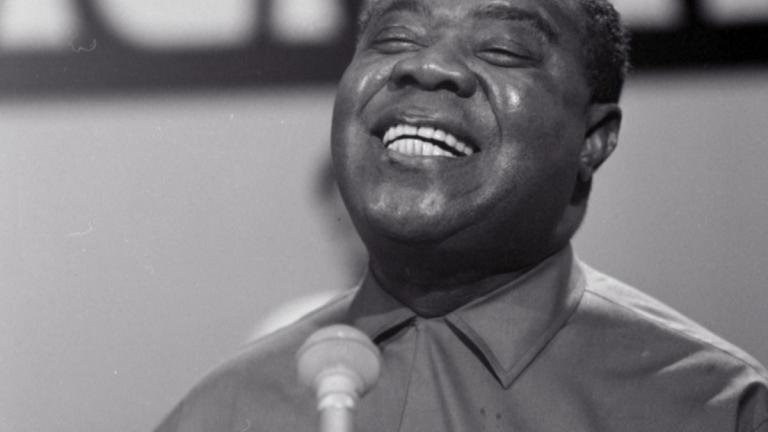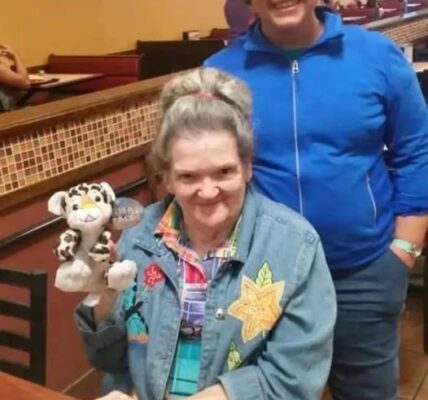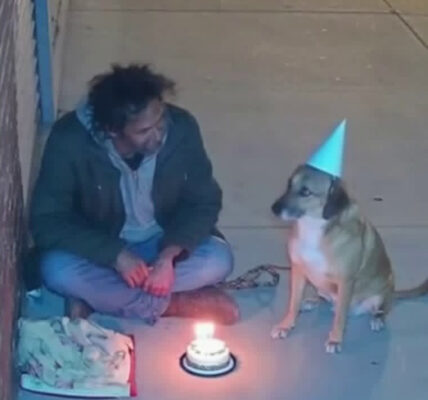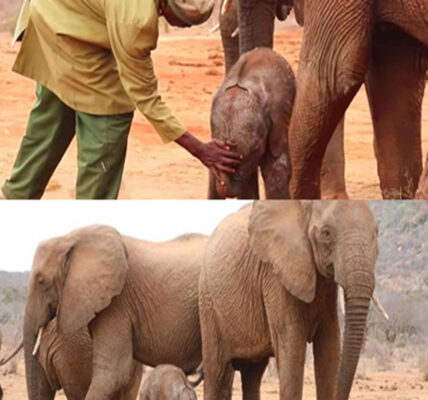
In the early years of the 1900s, in a rough New Orleans neighborhood known as the “Back of Town,” a little boy named Louis was born into poverty and struggle. His father abandoned the family when he was just an infant, leaving his mother to survive as best she could. Life in their small wooden house was filled with hunger, noise, and the constant uncertainty of what tomorrow would bring.
Louis’ childhood was marked by hardship. He often wandered the streets barefoot, looking for odd jobs or scraps of food. He sang on corners with three other children, harmonizing for coins from passing strangers. For them, a single nickel was a victory.

But one day, everything changed.
As Louis sang on the street, a Jewish family named Karnofsky stopped to listen. They had emigrated from Lithuania, chasing the same American dream that had drawn so many to New Orleans. What they saw that day wasn’t just a poor boy singing for change — they saw a child with spirit, with light, and with promise.
They brought him into their home.
The Karnofskys fed him warm food, gave him small chores to earn his keep, and, most importantly, treated him with respect. For the first time in his young life, Louis felt safe. Mrs. Karnofsky would hum Russian lullabies while she worked, and at night, she’d sing them softly to Louis as he drifted off to sleep. Sometimes he would join her, learning the melodies and words he didn’t yet understand — but he felt the love behind them.
 v
v
In their modest house, Louis discovered something new: belonging.
He worked alongside the family, helping sell coal and deliver goods. The Karnofskys encouraged him to sing as they worked — not to entertain customers, but because they knew how happy it made him. They believed in him long before the rest of the world did.
When Louis showed interest in playing music, the Karnofskys did something extraordinary. They gave him enough money to buy his first musical instrument — a battered old cornet. It wasn’t much, but to Louis, it was everything. It was his voice, his freedom, his future.
He practiced endlessly, mimicking the street bands and brass parades that echoed through the city. Every note he played carried traces of the people who had shown him kindness when he had nothing else.
Years later, when Louis Armstrong became one of the most beloved musicians in the world, he never forgot the Karnofskys. He often spoke about them, calling them his second family. “They treated me like a son,” he once said. “I learned from them how to live with love and determination.”
Out of gratitude, Louis wore a Star of David for the rest of his life, a symbol of the faith and kindness that had lifted him out of darkness. He even incorporated Jewish and Russian musical influences into some of his work, weaving their legacy into the heart of jazz itself.
Louis would go on to change the world. His trumpet broke barriers of race and class. His gravelly voice carried the joy and pain of a life that had seen both cruelty and compassion. And when he sang “What a Wonderful World,” people believed him — because they could hear the truth in his voice.

It wasn’t just a song about the beauty of life. It was a reflection of his journey — of a boy who once slept hungry, found love in a stranger’s home, and grew into a man who shared that love with the world.
The Karnofsky family never became famous. They didn’t seek recognition. But their kindness changed history. Without them, there may never have been a Louis Armstrong as the world came to know him.
Louis once wrote in his autobiography about the family who had taken him in back in 1907:
“They were the ones who taught me that love could be real, that people could care without expecting something back. I owe them everything.”
So the next time “What a Wonderful World” plays, listen closely. Between the trumpet’s notes and the warmth in his voice, you can almost hear a mother’s lullaby — sung long ago in a small house in New Orleans — and the echo of a little boy who learned, through kindness, what makes the world truly wonderful.




